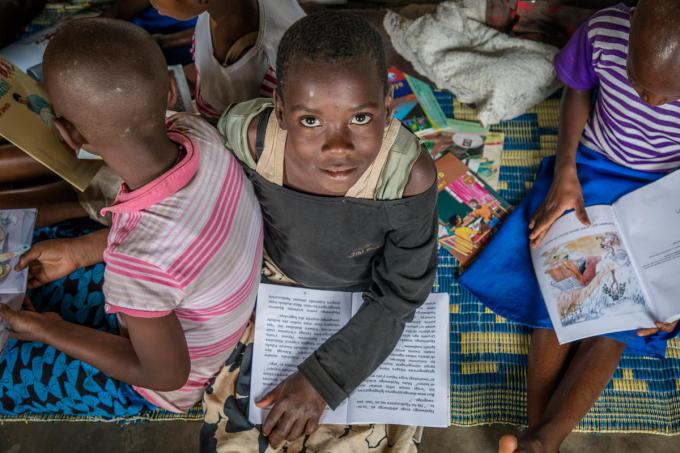PRESS RELEASE- COVID-19: Most marginalised children will bear the brunt of unprecedented school closures in Rwanda and around the world
31st March, 2020, Kigali – Governments and communities must act now to ensure that millions of vulnerable children do not lose out on their education as schools close their gates to try and contain the Coronavirus outbreak, warns Save the Children. More than 120 countries have already introduced nation-wide school and university closures affecting nearly three-quarters of the world’s student population – an estimated 1.2 billion learners – according to UNESCOThat number is expected to rise as the Coronavirus looks set to spread further. 
Save the Children calls on governments to urgently ensure appropriate care is available to children along with inclusive remote learning, recognizing school closures will hit the most marginalized children hardest. It’s also vital that governments support teachers and equip them with the skills to provide quality distance teaching. The impact of school closures extends beyond disruption to education – they also carry other risks to marginalized children and children from low-income households, because many may rely on school meals to support their daily nutrition.
“We are facing an unprecedented situation. The number of children suddenly out of school or university is more than half of Rwandan population. Hundreds of thousands of students won’t be able to return to normal classes for weeks, or for months, possibly longer, with many important exams postponed or cancelled altogether. This has become a heavy load to families, especially those with little knowledge on positive parenting, and a terrible disaster to the children within these families”- Paulin Ndahayo, Education Manager, Save the Children Rwanda Country Office
It is clear from what’s being shared on social media and other media platforms that parents are having a hard time taking care of their little children (especially those aged 1-6 years) during this working – from - home period. The challenges for parents and children is greatly felt, as we urge all Rwandans to respect the guidelines as set by the government of Rwanda to fight against the pandemic, we encourage parents and caregivers to continue to promote a culture of learning and reading. This quarantine period also presents a great opportunity for parents to spend time with their children in a productive and learning way.
Save the Children knows from experience that the longer children are out of school, the more likely it is they will never return, especially girls and those from low-income households. That’s why we request the government through the Ministry of Education to work with its partners to put in place easy-to-use distance learning tools as soon as possible, ensuring the technologies used aren’t excluding the poor, disabled or marginalized children. We need to get creative. In communities with little or no access to the internet for example, radio programs can enable children to continue their learning, or mitigate the consequences of not being in schools.
“We are committed to work with the Government of Rwanda, the Ministry of Education and the Rwanda Education board as well as other development partners to find innovative solutions to ensure that children are both safe at home and continue to have access to learning resources.” Ms. Maggie Korde, Save the Children Rwanda, Country Director
Now is the time for Rwandans to pull together to protect the most at-risk children across the country who are going to be hardest hit by this global crisis. These include homeless children, children in care and children who may be living alone without parents or caregivers. Disabled children may be further isolated or neglected if they can’t go to school while refugee and displaced children in temporary camps are even more vulnerable than they were before this crisis.
-ENDS-
 Rwanda
Rwanda